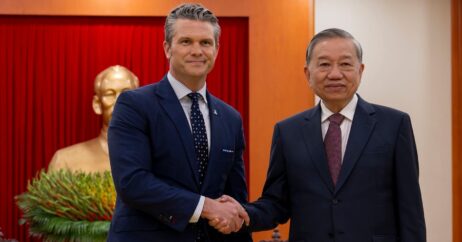Hong Kong — Francis Lun, who manages a small brokerage firm in Hong Kong, is breathing a sigh of relief after watching the Hang Seng Index suffer for nearly four years. The stock market had been stuck in a downward spiral, with economic challenges and strict COVID-19 restrictions dampening business prospects in both Hong Kong and mainland China. But recent developments have given him new hope. In late September, China’s central leadership introduced a series of stimulus measures that have brought the stock market back to life.
Since the announcement, the Hang Seng Index has seen an impressive 18% rally, the largest two-week gain in nearly two decades. For Lun, who has endured a lengthy period of uncertainty, the sudden boost in activity is a welcome change. “We were counting the days, waiting for something to happen,” he said from his office. “Now, things are finally picking up.”
But while the stock market is on an upswing, economists are concerned about whether these gains will trickle down to the broader economy. China’s real economy remains under considerable strain, with fears of a deflationary spiral looming large. The country’s ambitious 5% growth target appears increasingly difficult to reach without more significant intervention. Many analysts warn that while the recent stimulus measures have provided a temporary lift to financial markets, they may not be enough to address the structural issues at the heart of China’s economic slowdown.
Beijing’s approach so far has been heavily focused on monetary policy—primarily through interest rate cuts and changes to banks’ reserve requirements. While these moves have helped ease some of the immediate financial pressures, many believe that they do not go far enough to tackle the deeper challenges facing China’s economy. For a more comprehensive solution, economists are calling for a stronger fiscal response—a strategy that would involve increased government spending to stimulate demand and boost consumer confidence.
“The real issue here is the lack of consumer confidence,” noted a recent report from Nikko Asset Management. The report emphasizes that without a more aggressive fiscal strategy, the economy could remain stagnant. Many economists agree that the next step for China’s leadership should involve significant government spending on public infrastructure projects and initiatives aimed at encouraging consumer spending.
Ray Dalio, the founder of Bridgewater Associates, one of the world’s largest hedge funds, recently weighed in on the situation. In a social media post, Dalio suggested that this could be China’s “whatever it takes” moment—a reference to the decisive action taken by Western governments during previous economic crises. According to Dalio, China’s leadership needs to do much more to stabilize the economy and restore confidence.
The good news is that additional measures may be on the horizon. The National Development Reform Commission, China’s top economic planning agency, is expected to unveil a package of policies aimed at stimulating growth in the coming days. Analysts are hopeful that these measures will include significant increases in public spending, particularly on large-scale infrastructure projects that could help reignite demand across various sectors.
The property market, in particular, remains a key area of concern. Long seen as a drag on the economy, the real estate sector has been the focus of several recent policy changes aimed at stabilizing prices and encouraging new investment. At a rare joint press conference in late September, top financial officials, including the Governor of the People’s Bank of China, announced a series of measures to support the housing market, including cuts to mortgage rates and reductions in down payments for second-home buyers.
This coordinated approach to addressing China’s economic challenges marks a significant departure from the opaque, often secretive nature of previous policy announcements. The press conference, which featured high-ranking officials from several of China’s key financial institutions, was seen as a clear signal that Beijing is taking the situation seriously and is committed to greater transparency moving forward.
Still, many analysts caution that the road to recovery will be long and difficult. While the recent stimulus measures have helped lift the stock market, the broader economy remains fragile. Without a sustained commitment from China’s leadership, it is unclear whether the current momentum can be maintained. Some economists, such as Jia Kang, a former director at the Ministry of Finance, have called for even more aggressive action. Jia recently suggested that China should be prepared to issue up to 10 trillion yuan in long-term bonds to fund large-scale infrastructure projects. Such a move, he argues, is necessary to prevent the economy from slipping into a prolonged period of stagnation.
As the world watches China’s next moves, the stakes could not be higher. With global markets increasingly interconnected, the success or failure of China’s economic recovery plan will have far-reaching implications for the global economy. For now, the focus remains on Beijing’s ability to navigate this critical moment and steer the country back toward sustained growth.









